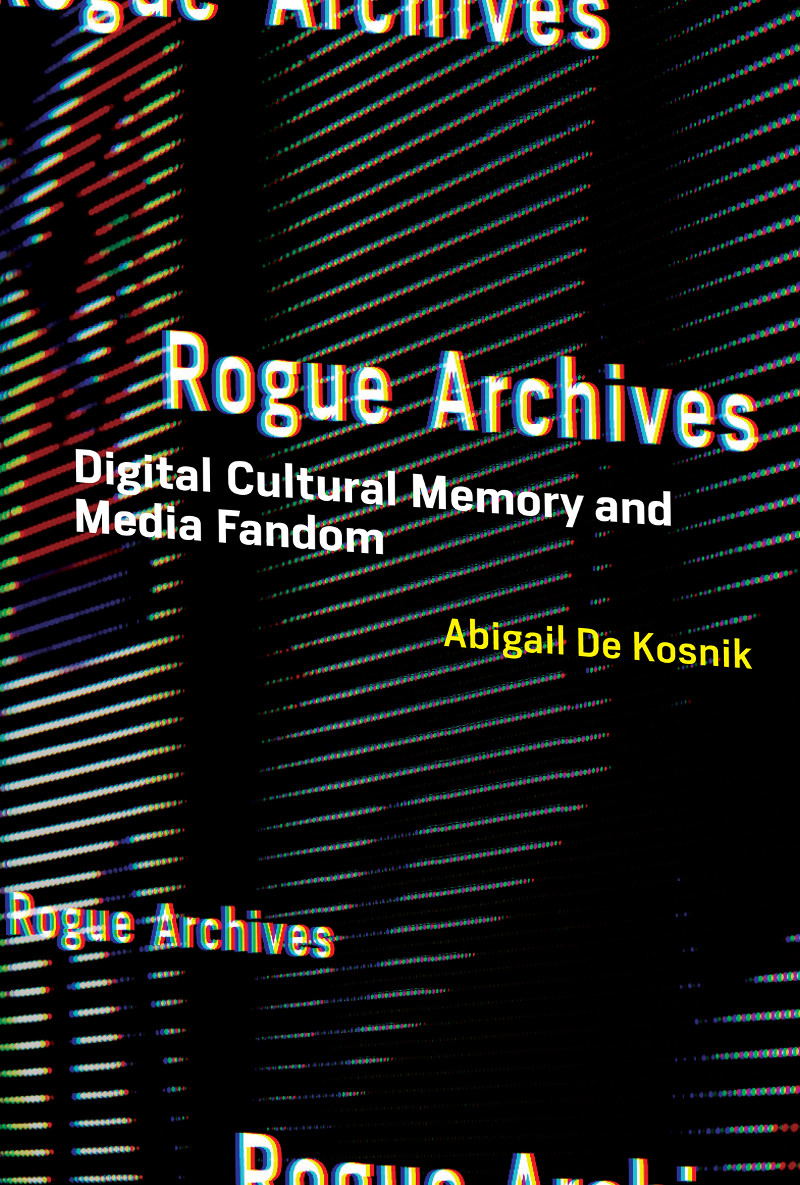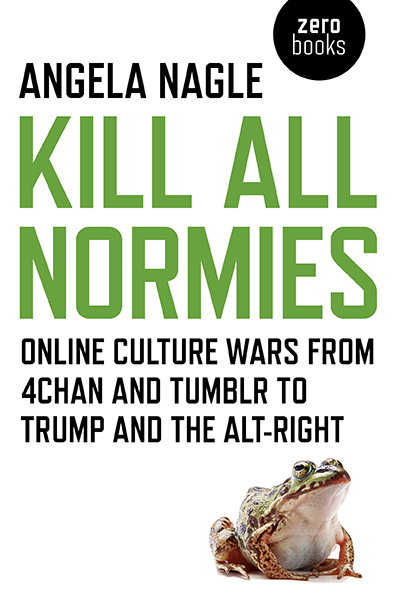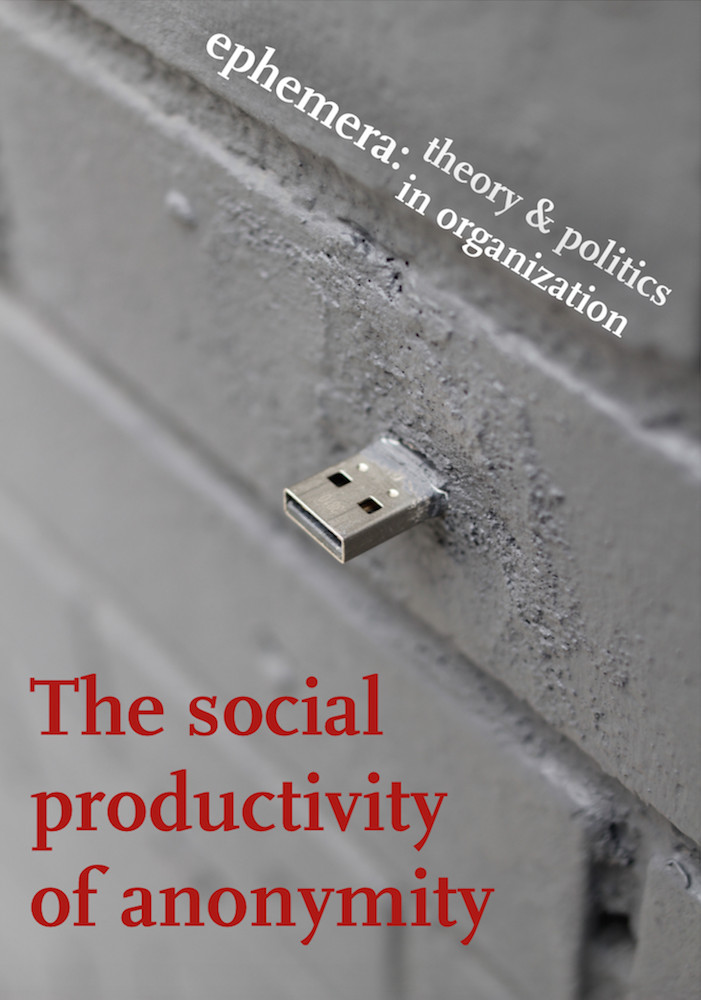Abigail De Kosnik: Rogue Archives: Digital Cultural Memory and Media Fandom (2016)
Filed under book | Tags: · archive, archiving, cultural memory, digital media, diy, fan culture, fiction, internet, preservation

“The task of archiving was once entrusted only to museums, libraries, and other institutions that acted as repositories of culture in material form. But with the rise of digital networked media, a multitude of self-designated archivists—fans, pirates, hackers—have become practitioners of cultural preservation on the Internet. These nonprofessional archivists have democratized cultural memory, building freely accessible online archives of whatever content they consider suitable for digital preservation. In Rogue Archives, Abigail De Kosnik examines the practice of archiving in the transition from print to digital media, looking in particular at Internet fan fiction archives.
De Kosnik explains that media users today regard all of mass culture as an archive, from which they can redeploy content for their own creations. Hence, “remix culture” and fan fiction are core genres of digital cultural production. De Kosnik explores, among other things, the anticanonical archiving styles of Internet preservationists; the volunteer labor of online archiving; how fan archives serve women and queer users as cultural resources; archivists’ efforts to attract racially and sexually diverse content; and how digital archives adhere to the logics of performance more than the logics of print. She also considers the similarities and differences among free culture, free software, and fan communities, and uses digital humanities tools to quantify and visualize the size, user base, and rate of growth of several online fan archives.”
Publisher MIT Press, 2016
ISBN 9780262034661, 0262034662
x+430 pages
Reviews: Jan Baetens (Leonardo, 2017), Amanda Gilroy (PopMatters, 2017), Ludi Price (2016), Silvia Bertolotti (DigiCult, 2016).
Interview with author: Henry Jenkins (2016), Christina Yang (TDR, 2019).
HTML (added on 2020-3-13)
PDF (10 MB, updated on 2020-3-12)
Academia.edu (added on 2020-3-13)
Angela Nagle: Kill All Normies: Online Culture Wars from 4chan and Tumblr to Trump and the Alt-right (2017)
Filed under book | Tags: · 4chan, alt-right, internet, libertarianism, memes, tumblr, web

“Recent years have seen a revival of the heated culture wars of the 1990s, but this time its battle ground is the internet. On one side the “alt right” ranges from the once obscure neo-reactionary and white separatist movements, to geeky subcultures like 4chan, to more mainstream manifestations such as the Trump-supporting gay libertarian Milo Yiannopolous. On the other side, a culture of struggle sessions and virtue signalling lurks behind a therapeutic language of trigger warnings and safe spaces. The feminist side of the online culture wars has its equally geeky subcultures right through to its mainstream expression. Kill All Normies explores some of the cultural genealogies and past parallels of these styles and subcultures, drawing from transgressive styles of 60s libertinism and conservative movements, to make the case for a rejection of the perpetual cultural turn.”
Publisher Zero Books, Winchester, UK, 2017
ISBN 9781785355431, 1785355430
120 pages
Reviews: Leif Weatherby (Jacobin, 2017), Olivier Jutel (Overland, 2017), Cameron L Fantastic (2017), Gareth Watkins (Queens Mobs, 2017), Catherine Liu (LA Rev of Books, 2017), Jen Isakson and Ross Speer (Radical Philosophy, 2018).
Comment (1)Ephemera, 17(2): The Social Productivity of Anonymity (2017)
Filed under journal | Tags: · anonymity, internet, self

“In a process that started decades ago, a multiplicity of forces is creating a slow, but steadily rising storm against anonymity. Discourses of transparency and accountability often describe anonymity as a threat. Technologies such as the IP-address-based Internet, sensory devices, and machine learning techniques further undermine anonymous encounters. In an age of near ubiquitous surveillance, anonymity is under attack. But what is at stake in such discourses and developments? Based on the premise that anonymity is always socially productive and always socially produced, this special issue draws attention to anonymity as a social form that demands renewed attention. The contributions explore its temporalities, its transformative powers, and its entanglements with public spheres, property relations, and practices of person making.”
Publisher Ephemera collective, with MayFlyBooks, May 2017
Creative Commons Attribution-Noncommercial-No Derivative Works 3.0 Unported License
ISBN 9781906948375
220 pages

